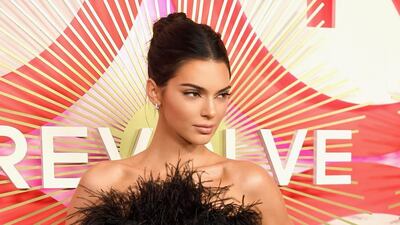The murky world of marketing via social-media stars took a hit last week as the UK’s Competition and Markets Authority (CMA) conducted an investigation into people not properly labelling paid-for posts.
Singers Rita Ora and Ellie Goulding, models Alexa Chung and Rosie Huntington-Whiteley, and vlogger Zoella were among the 16 celebrity influencers who CMA believes have failed to adhere to consumer protection law guidelines, which state anyone plugging products needs to clarify whether or not they’re being financially rewarded for it.
If you don’t, technically you can be fined or even jailed for up to two years.
What's real anymore?
Below is an Instagram post from Chung, who thanks @prada for the outfit she’s wearing. The usual #ad or #sponsored hashtags are conspicuously missing. It doesn’t necessarily mean money changed hands, but it’s highly likely that the high-end brand at least gave the model her clothes for free. Otherwise, why say thanks?
Rita Ora recently posted a picture of herself in a bright red bikini while on holiday in Jamaica, saying “thank you @rockhousehotel”. Complimentary stay?
Meanwhile, Cara Delevingne urged her 41 million followers to “check out” Rimmel make-up. Again, no clue as to whether or not this is an #ad, but the actress, model and singer is an ambassador for the brand. #PartOfTheJob?
The UAE rules
It’s not an uncommon sight anywhere in the world, particularly in the UAE. Here, the social media influencer is much revered, particularly in marketing circles, and yet until recently there were no clear-cut rules. Now, the National Media Council guidelines state: “advertisements must appear distinctively and separately from any other media content… Disclosure must be made clearly in case there is any financial or in-kind payment by the issuing authority for publications or articles published on social media, websites or blogs.”
But, let’s face it, plenty still don’t disclose, whether they’re here or elsewhere in the world. And we’re all left guessing if the post we’re looking at is a well-meaning recommendation or a sneaky ploy to win our business. We’re in the dark about what motivates a lot of the “authentic content” we scroll past these days.
The Fyre Festival debacle
You might not think it's much of an issue, particularly when it comes to freebies. But let's take a moment to consider Fyre Festival, the April 2017 disaster that's the subject of a new Netflix documentary. In a bid to promote the event, celebrities and influencers, including Kendall Jenner, Bella Hadid and Hailey Baldwin (Bieber), were either paid or given free tickets so they'd post a cryptic orange tile, with a link to the event's website, on their feeds. Jenner was reportedly paid $250,000 (Dh920,000) to do so, and yet her post ran with nothing to suggest her financial interest.
Within 48 hours, 95 per cent of tickets had sold to people looking to live their best lives like these A- to Z-listers. And we all know how that turned out.
Those people bought into a lie, just like the rest of us when we believe in the online narrative most of these celebrities – and brands – are selling us. When people like Jenner get a bag for free, post about how amazing it is, and then we rush out and spend our hard-earned cash on it – who really wins here? We might have in our possession Delevingne’s favourite shade of lipstick, but what happens when another make-up brand creates a new marketing plan and reaches out to a well-followed celeb? As a new lippie hue of choice floods our feeds, our wallets get ever lighter and our worlds get increasingly dictated by consumerism.
Can we regulate?
While there has been a crackdown – Jenner and all the other stars who promoted Fyre Festival are now facing a subpoena – we have to ask: is it really possible to properly regulate this brave new world? As Amelia Tait wrote in an article for The Guardian last week: "There are far too many shady influencers who continue to blur the lines – and get away with it".
There are reasons why rules and regulations surrounding sponsored posts exist. They’re the same rules that have existed for print publications for years. The thing is, fans and readers should have all the facts, so they can decide for themselves whether or not it’s worth spending money on. Most social-media users have less in the bank than the Jenners of the world, and so parting ways with a fistful of dirhams only to find it wasted is far more painful than the milliseconds an influencer would spend typing #ad.
Also, if you’re so into the product, and willing to enter into a partnership with the brand, then why wouldn’t you want to tell people about it?
Basically, don't lie
Transparency, reliability and credibility is key. Whether you’re a lone freelancer looking to carve out your niche online or a behemoth of a magazine brand that’s been influencing trends for decades, it’s about constantly respecting your followers, being honest with your audience and not getting complacent.
It might be a tough thing to regulate, but this is where education comes in. While there will always be those free-loaders looking to bag a freebie at any chance they get, they won’t forever be able to rely on an un-savvy audience waiting to lap it all up.
In this fickle age of viral posts and very public faux, sooner or later, all of these influencers – no matter how famous and “safe” they think they are – will have to wise up or be relegated into the Hall of 15-minutes-of-Fame.
Surely, today, they’re best off choosing “honesty is the best policy” as their mantra. Anything else is just shortsighted.



